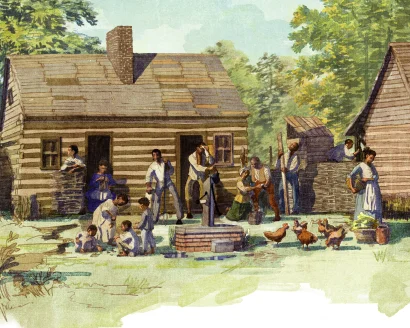By Jenifer Bazzit
I’m going to be very honest, teaching about slavery is heart-wrenching, but I’m sure you already know that. I like to study history, and I love to learn about the legendary events and larger-than-life people that we all love to discuss. But sometimes I come across topics that are difficult to swallow. Does that mean I should ignore them and move on? No.

Let’s talk about why it is important to study slavery. Why is 18th-century slavery important to teachers and students?
First, these people mattered. It’s so easy for students to forget the humanity of people who lived and worked hundreds of years before our birth. As a teacher, I cannot honor the memory of the innocent men, women, and children caught up in the slave trade if I fail to acknowledge their significance in American history with my students.

Third, I need to make sure my students know what happened so that slavery never happens again. I often share the quote, “Those who cannot remember the past are condemned to repeat it,” by George Santayana. I want my students to understand that to be true historians, they cannot sweep this dark past under the rug. Join me in changing the narrative for discussing history with those around us.

Best Practices for Discussing 18th-Century Slavery
- Teach the era of slavery objectively and from a historical standpoint. Use facts about the entire process of slavery, but also include stories of individuals.
- When discussing the horrors of slavery, don’t just focus on the physical punishments that enslaved people received. The cruelest part of slavery was the fact that enslaved families could be split up and sold away from each other at any time.
- Talk about abolitionists. Not everyone in the 1700s encouraged slavery or used enslaved labor. Emphasize the fact that there were many, many people, both white and black, who hated slavery and risked their lives and freedom to help enslaved individuals escape.
- Emphasize that black men, both free and enslaved, were valuable soldiers during the American Revolution, Civil War, and every following war. They fought bravely and had a lasting impact on our nation’s history.
- Let’s change our vocabulary! Instead of saying “slaves,” use the term “enslaved individuals.” It’s a minor change, but it humanizes the enslaved community.
Jenifer Bazzit teaches 5th grade in Oklahoma. To learn more about Jenifer’s classroom, you can read her teaching blog at http://thriveingradefive.com/.
